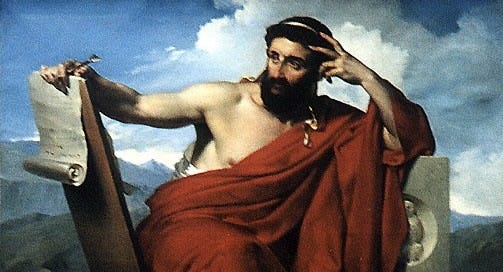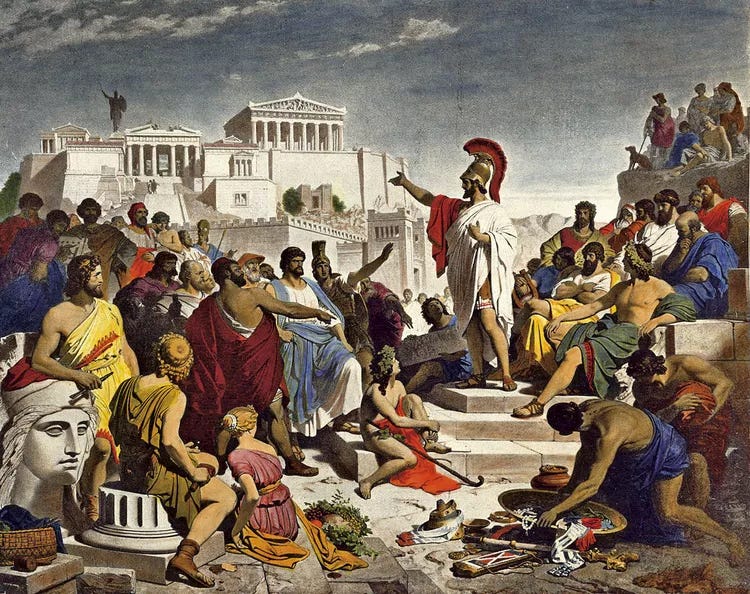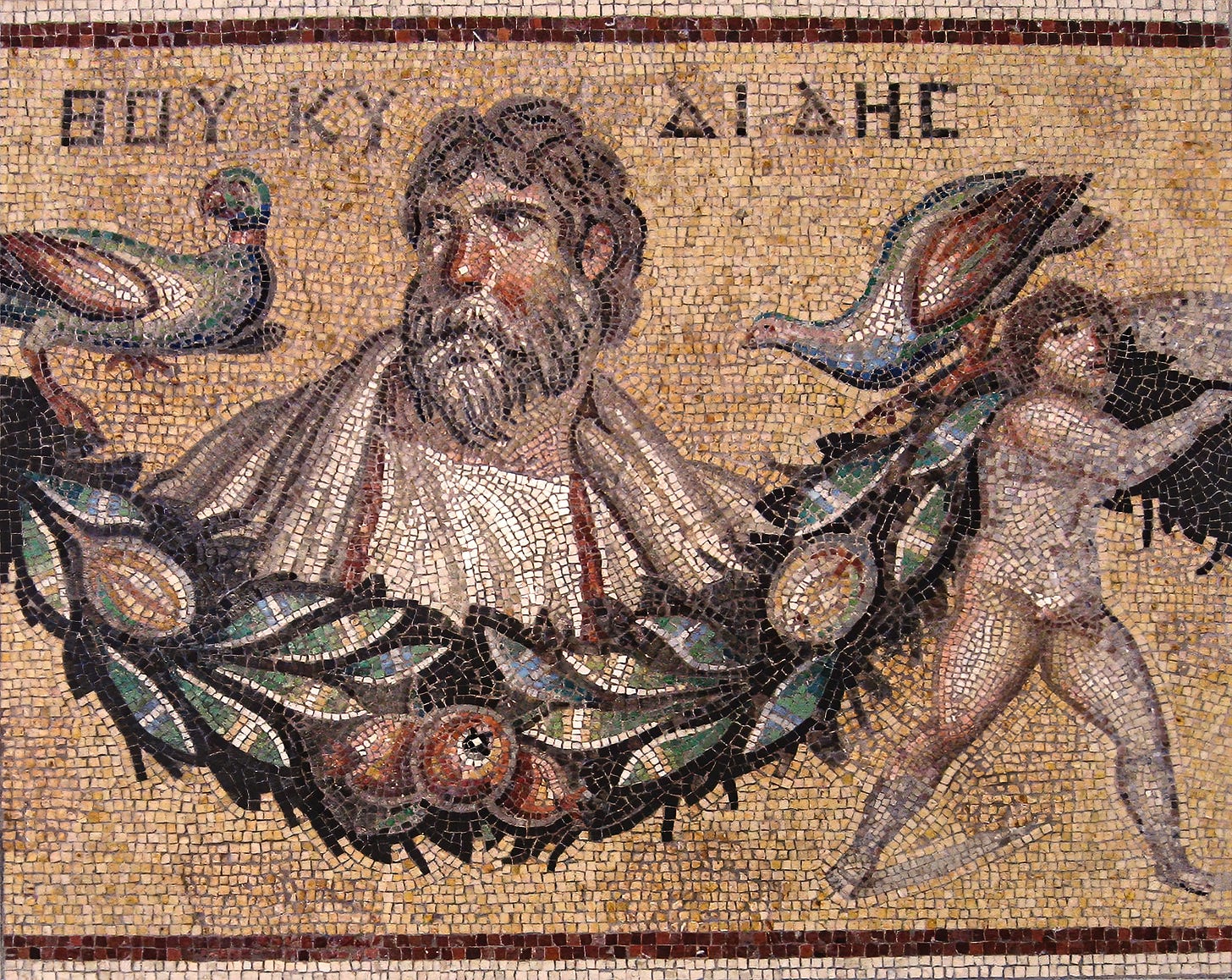Athens in Philadelphia: How Solon, Pericles, and Thucydides Shaped the American Mind
Before the Founding Fathers forged a new Republic, they looked backward, to the ancient world, for the blueprints of liberty, law, and civic virtue.
What happened in Philadelphia in 1776 didn’t appear from thin air. It was the product of centuries of thought, debate, struggle, and memory; an intellectual inheritance passed down from ancient city-states to colonial minds, from Athenian democracy to the American Republic.
The Founders weren’t just lawyers, farmers, and merchants. They were thinkers, steeped in classical history, philosophy, and the hard-won lessons of failed republics. They knew that liberty could not exist without order, that power always seeks more power, and that the success of a free society depends on the character of its citizens.
And when they reached back for wisdom, three names loomed large: Solon, Pericles, and Thucydides.
Solon: The Lawgiver and the Balance of Power
In 594 BC, Athens was on the verge of collapse. The rich were feasting, the poor were enslaved by debt, and resentment simmered beneath the surface. Into this chaos stepped Solon, a poet, a merchant, and a reluctant revolutionary.
Solon’s genius wasn’t in wielding power, but in restraining it. He canceled debt slavery, restructured political representation, and rewrote the laws of Athens. He gave citizens a voice, not in full democracy yet, but in a system built to reflect both reason and fairness. He believed that justice was the foundation of order, and that the people must play a role in governance if tyranny was to be avoided.
This idea, of constitutional government, was radical. And it rippled through history.
The American Founders saw Solon as a kindred spirit. His concept of mixed government, balancing the interests of classes and restraining centralized authority, directly inspired the American system of checks and balances. James Madison echoed Solon’s belief that ambition must be made to counteract ambition. The goal wasn’t chaos or control, it was equilibrium.
Solon’s legacy reminds us that law is not just a code, it’s a moral contract between people and power.
Pericles: The Voice of Civic Virtue
Where Solon built the structure, Pericles gave it a soul.
In his legendary Funeral Oration, delivered during the Peloponnesian War, Pericles honored the fallen by elevating the living. He described a city where the people governed themselves, where debate was open, and where excellence in civic life was as important as courage on the battlefield.
“Our constitution is called a democracy because power is in the hands not of a minority but of the whole people.”
To Pericles, freedom wasn’t just a right, it was a responsibility. Citizens were expected to participate, to deliberate, to sacrifice, to care. And that spirit, of civic virtue, would shape the idealism of the American Revolution.
Jefferson, Adams, and even Hamilton understood what Pericles meant. Liberty without virtue, without participation, was fragile. The Republic would only survive if its people were worthy of freedom.
Today, Pericles challenges us still. He reminds us that the health of a nation is not measured only by its wealth or armies, but by the strength of its citizens’ character.
Thucydides: The Historian of Hard Truths
If Solon gave structure and Pericles gave soul, Thucydides gave the Founders something just as important: realism.
Thucydides’ History of the Peloponnesian War was not a celebration of victory, it was a tragic tale of democratic decay, civil war, and the corruption of noble ideals. He chronicled how Athens, drunk on its own power, collapsed from within.
His account of the civil war in Corcyra, where partisans murdered their neighbors in the name of politics, was burned into the minds of men like Madison. They understood: liberty is not self-sustaining. Factionalism can tear a republic apart. The greatest threat isn’t always foreign, it’s internal decay.
Thucydides warned that power, once gained, is rarely surrendered. That fear drives conflict. That ambition disguises itself as virtue.
The Founders didn’t read him for inspiration. They read him as a warning. He taught them what not to do.
And in doing so, he helped them do something miraculous: to build a government with firewalls against chaos, mechanisms to temper ambition, and the humility to expect corruption, and account for it.
The American Mind: A Classical Soul Reawakened
The American Revolution wasn’t a rupture from the past. It was a revival.
The Founders didn’t just want to throw off a king, they wanted to prove that self-government was possible, that a republic could be built on law, virtue, and realism.
From Solon, they learned balance and the sanctity of law.
From Pericles, they inherited the ideal of the engaged citizen.
From Thucydides, they absorbed the sobering truths about power and human nature.
These weren’t abstract ideas. They were blueprints.
And now, nearly 250 years later, we must ask ourselves:
Do we still remember them?
Do we still live by them?
Do we still deserve them?
Value for Value: Time, Talent, or Treasure
If this essay brought you value, consider giving something back; time to share it, talent to contribute, or treasure to support the mission. Whether it’s insights, resources, or a paid subscription, every bit helps keep this work alive. Join the cause.





